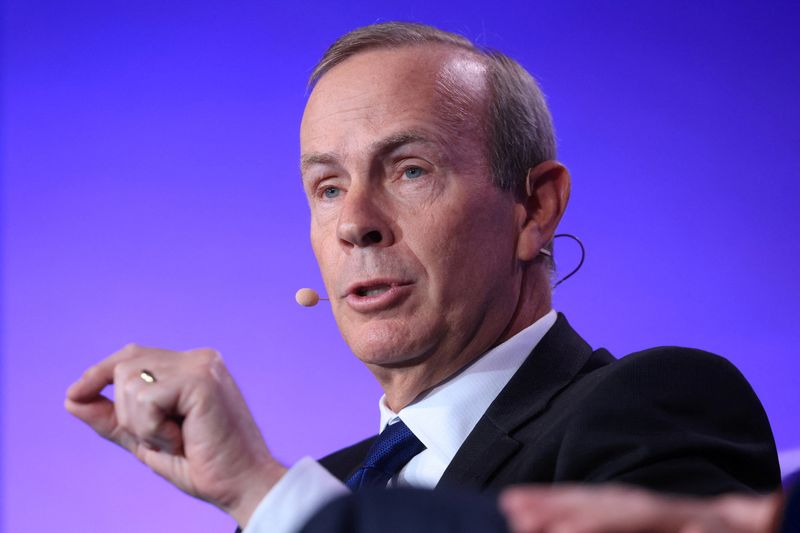By Georgina McCartney
HOUSTON (Reuters) -Chevron, the only U.S. oil producer now working in Venezuela’s oil fields, has not had any conversations with newly elected President Donald Trump’s team about the company’s operations in the country, Chief Executive Officer Michael Wirth said on Friday.
Since 2019, Venezuela’s oil industry has been under US sanctions aimed at curbing oil revenues and ousting President Nicolas Maduro in response to electoral fraud following his re-election in 2018 and a disputed election in 2024.
Chevron (NYSE:) has been allowed to export oil since 2022 to recover unpaid dividends from joint venture partners.
It is intended to support U.S. policy toward Venezuela while providing a better future for Venezuelans, Wirth said in remarks to the Atlantic Council think tank.
“We’re trying to hang in there and work with our government,” Wirth said.
“As other companies have left Venezuela, they have largely been replaced by companies from two countries, Russia and China, and if we were to leave, the operations we are involved in would undoubtedly take place there. probably end too,” he added.
The easing of restrictions on Chevron and other oil companies came under US President Joe Biden’s administration and it is unclear what the new Trump administration’s policy will be.
Last month’s oil shipments from Venezuela by Chevron under a 2022 Biden administration authorization to the U.S. amounted to 238,000 barrels per day.
Wirth also spoke about the U.S. Strategic Petroleum Reserve, which the government is trying to replenish after its largest ever sale in 2022 left it at its lowest level in 40 years.
“If (the SPR) is no longer needed, then we have to come to that conclusion. If it is necessary, I think there should be some guardrails around its use that are a little bit stronger than those that exist today,” Wirth said.

And on Iran, Wirth noted that current US sanctions have not actually kept Iranian barrels out of the market, but rather diverted them.
“And that’s true of a lot of the sanctions that are currently in place. They haven’t really restricted supply. They’ve just diverted supply,” Wirth said.


